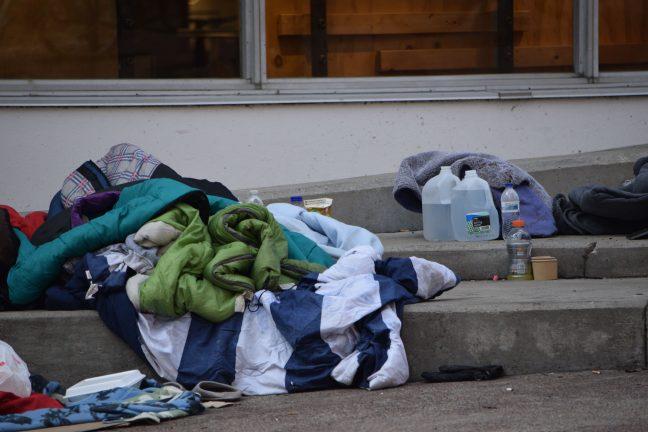The Wisconsin Department of Health Services announced Oct. 27 that families and pregnant women in extreme poverty and facing homelessness will receive housing assistance. The program will provide housing for eligible applicants in addition to connecting them with healthcare providers, childcare and transportation services. This program is the first of its kind in the nation, making Wisconsin a flagship state for homelessness support.
This program is incredibly important and beneficial to solving the crisis of homelessness in not only Wisconsin, but potentially across the country — particularly for families. Housing and familial stability is incredibly important in a child’s life and development. According to The Cap Times, there are 79 families in Dane County living in areas not considered suitable for human living.
Studies have found that living in a low-quality environment or not having a home at all is incredibly detrimental to development of children. Underserved children tend to have more emotional and behavioral problems than their peers in higher-quality homes. These problems can also generate mental disorders such as anxiety, depression or more outwardly aggressive behaviors. Children who live in low-quality housing also tend to perform worse on math and reading tests than other students.
Other studies show that experiencing psychological traumas or problems at a young age can reduce the amount of money those individuals make in the future and make it more difficult for them to maintain stable, healthy relationships.
Housing struggles create issues for adults as well. Any individuals experiencing homelessness have higher risks of becoming ill, needing to visit a hospital and death. The average life expectancy for a homeless individual is between 42 and 52 years old, according to a study from the University of Tennessee Health Science Center.
By addressing housing needs, the new program could be life changing for individuals in Wisconsin experiencing different levels of homelessness and could prevent them from developing mental or physical illnesses.
Currently, the program focuses on providing equal support for each of the four categories of homelessness. The classifications include literal homelessness, risk of homelessness, homeless defined by federal statutes and individuals attempting to escape domestic violence.
If this program is successful after its initial launch, it could certainly be expanded to focus on each individual category of homelessness. This could provide people with even more specialized support for the type of situation they are in.
Moreover, a separate expansion of the program could provide housing support to homeless individuals who do not have any family members. As exemplified earlier, homelessness has profound impacts on people of any ages, not just children and families. If possible, the program should include supporting the entire homeless population.
Lastly, the program currently only has eight Department of Health Services providers to assist people. This includes one each for Dane, Milwaukee and Racine counties and five to handle the rest of the state’s cases. Though the amount of providers is likely an initial launch number, this is not enough to address all of the homeless families in the state. To expand the program and aid even more families and pregnant women, the number of DHS providers needs to increase.
Other forms of assistance for homeless individuals could also be added to this program. In addition to supporting the transition from homelessness to housing, mental health services could be provided. Particularly, family and individual therapy could be provided to help children and adults adjust to their new lives. The transition can be quite abrupt for many, so it is important to provide necessary support.
This program could be expanded across the United States under the Biden Administration and through the United States Department of Health and Human Services. Though a full expansion would take time, extending services on a state-by-state basis could be incredibly beneficial, particularly for states like California or New York, which have high rates of homelessness.
Ultimately, though this program is the first of its kind, Wisconsin has the potential to make a profound impact on the lives of homeless families. Implementation and eventual expansion present an opportunity for the state and federal governments to support its most vulnerable. Fundamental housing support is a promising step toward justice.
Emily Otten (elotten@wisc.edu) is a junior majoring in journalism.


